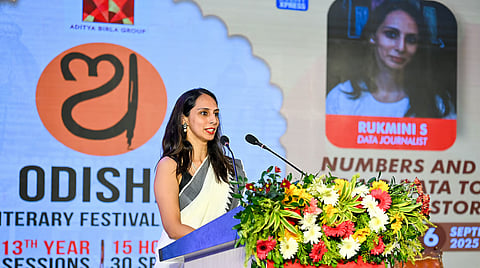

India’s super-rich mostly remain poorly represented in data as they often deny access to enumerators, said award-winning data journalist and founder of Data for India, Rukmini S.
Speaking at a session on ‘Numbers and Narratives: Using Data to Tell India’s Stories’, moderated by The Sunday Standard consulting editor Ravi Shankar, she said gated societies do not open their doors to national sample survey enumerators unless issued with special passes. “The super-rich are much more able to rebuff surveyors in a way that people who are less empowered cannot. In India, response rates are generally high because people fear authority and think they should respond to such surveys.”
Rukmini, author of Whole Numbers and Half Truths, underlined the importance of reliable data in correcting misconceptions about Indian society. “We often ask what good data can tell us and what it misses. The fact is, India does have good data, and the process has kept pace with time. We may have been slow in digitisation and using technology in collecting data, but things have accelerated in the last five to ten years. Access to data has expanded enormously, and much of it is free,” she said.
She said many narratives about class and society are not based on evidence. “People wonder how hard life is for the middle class who live on Rs 5,000 a month on everything. The narratives around the middle class are very far from what the data suggest. It gives a reality check about how a country looks like and also about the change,” she explained.
Numbers, she said, also offer perspective on social change. “Nearly half of Indian households today own two-wheelers. That is a transformation visible in daily life, and data confirms it. While there is concern about rising inter-caste intolerance, surveys show the share of inter-caste marriages has remained unchanged since the 1990s,” she observed.
